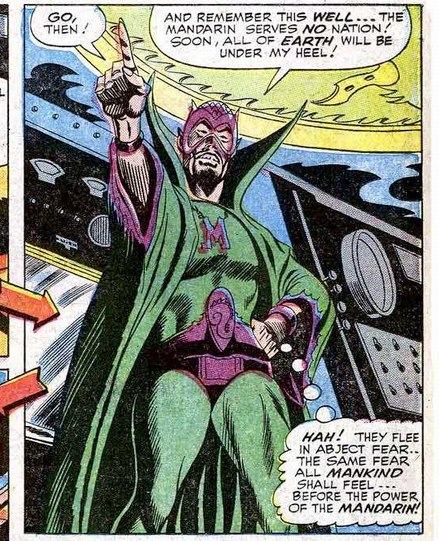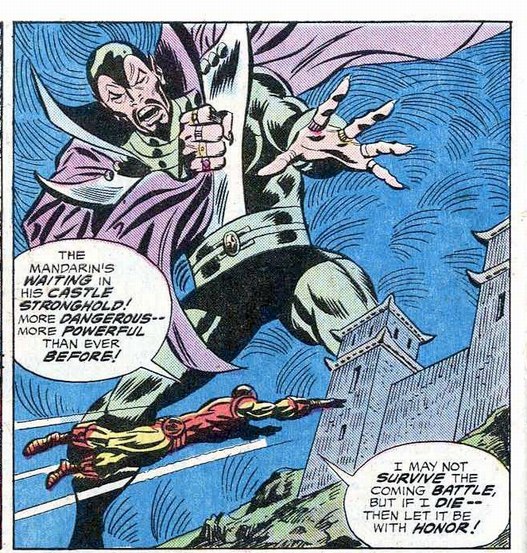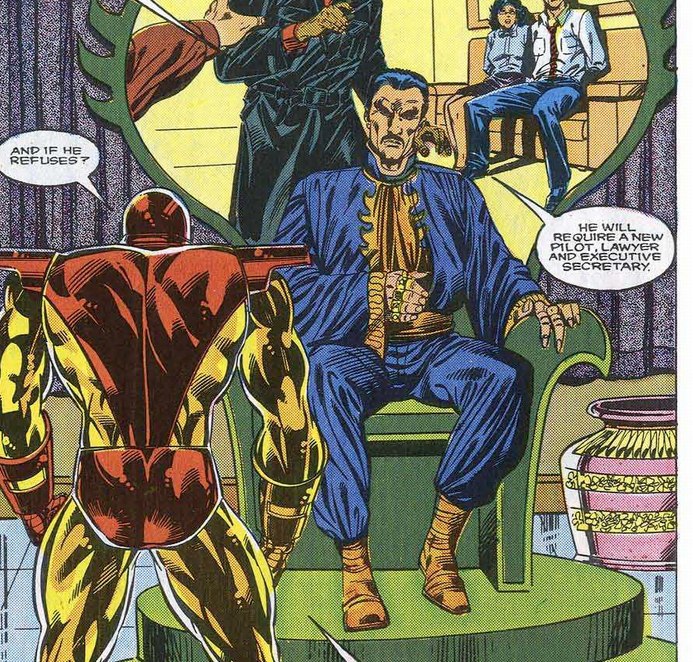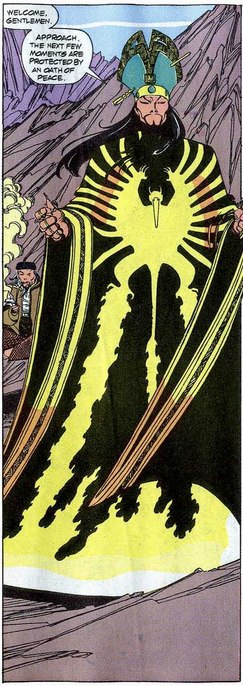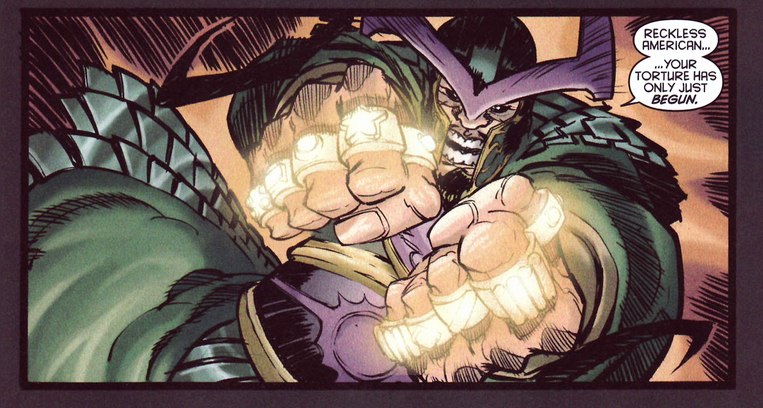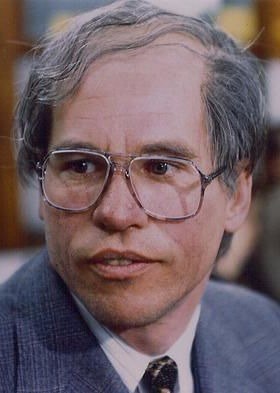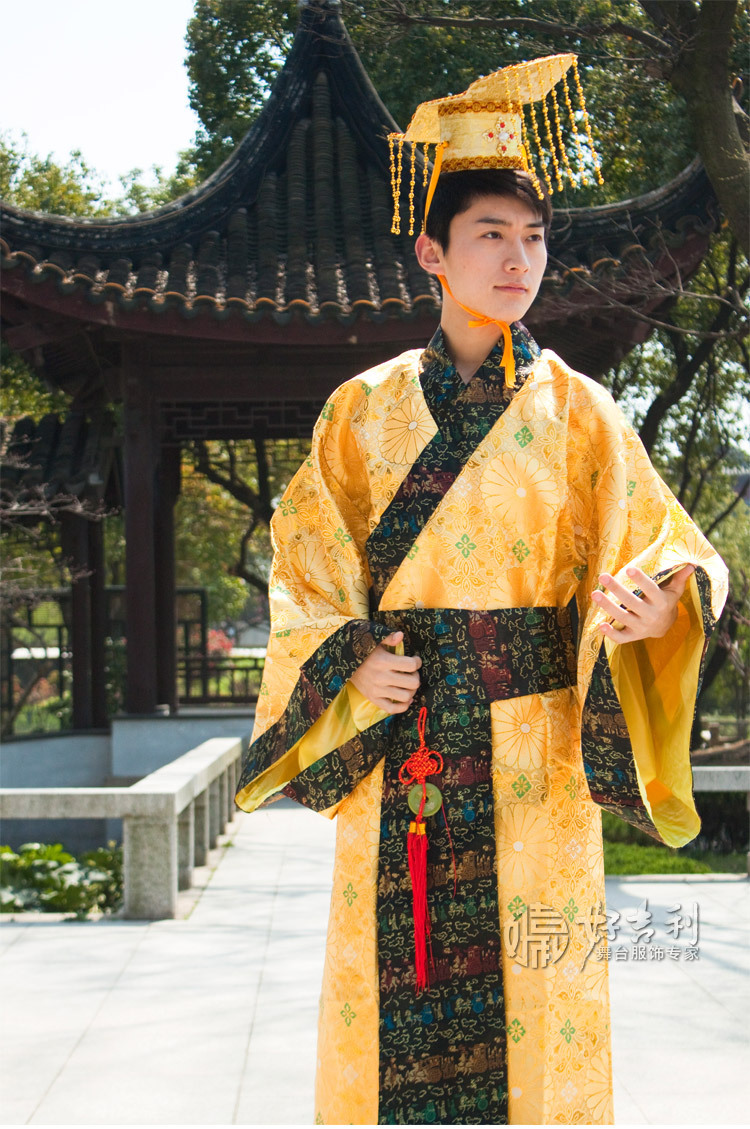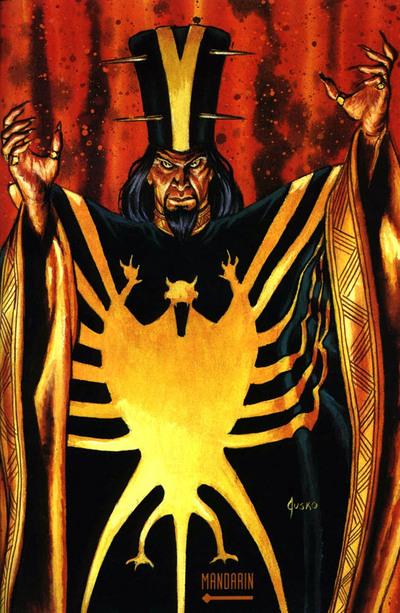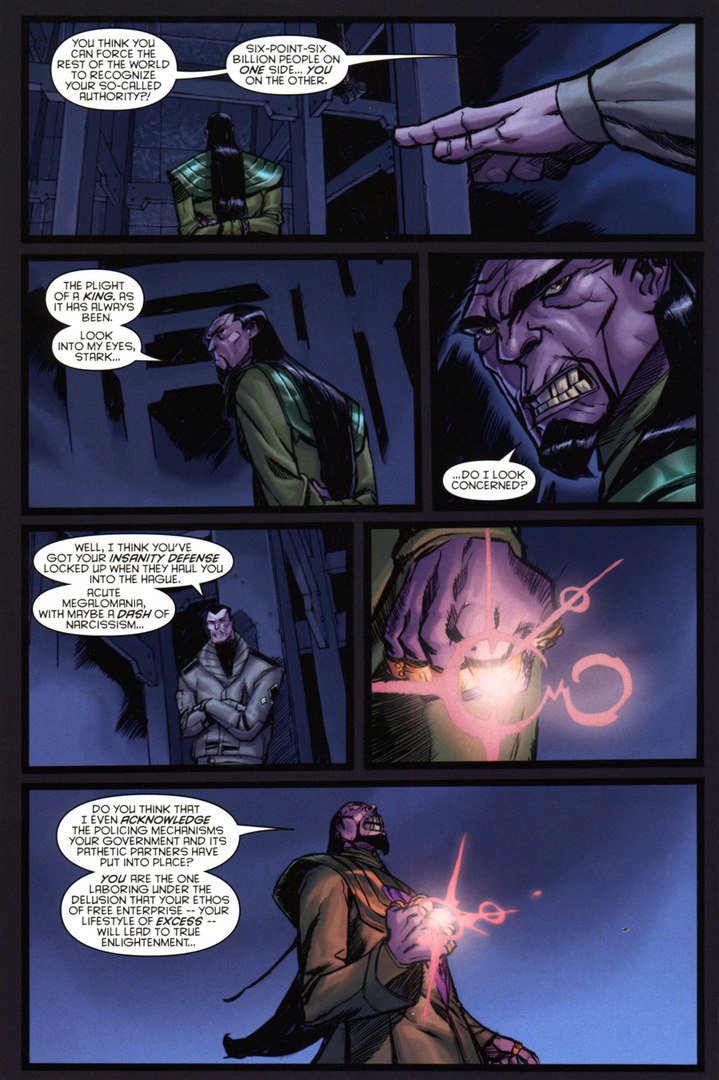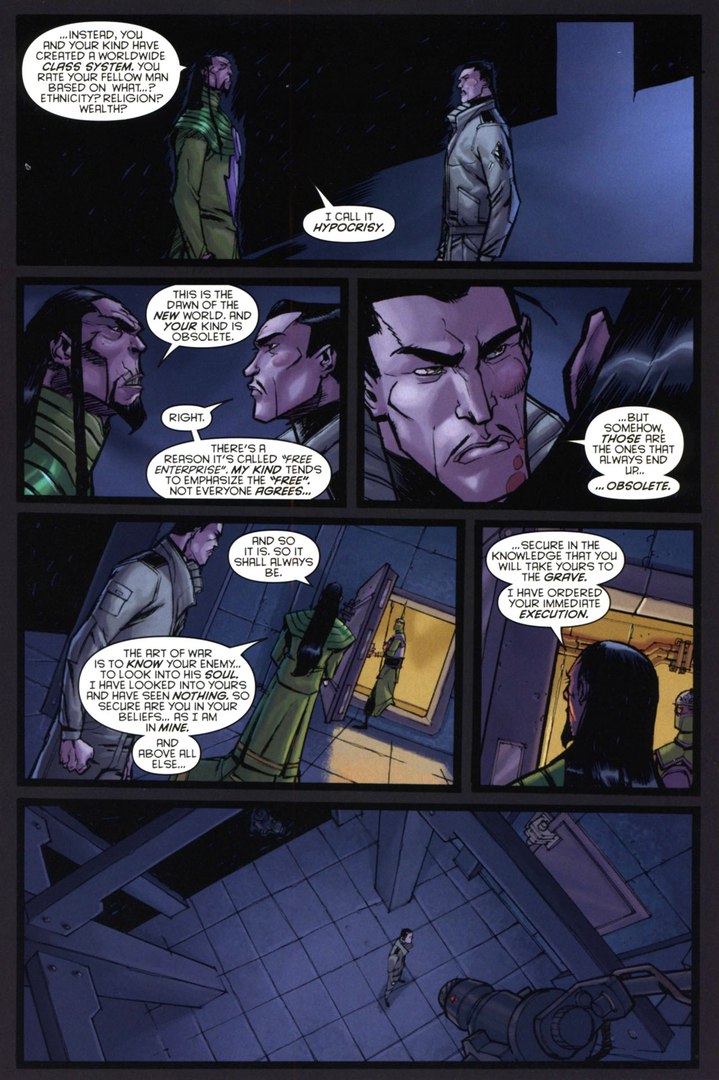I think you missed the point of those stories. When he cooperated with the communists in one of the issues of Tales of Suspense, he had no intention in becoming one of them, or part of the government. His plan was to make them believe that he cooperates with them, and communists believed that he'll help them win a cold war, but, in reality, Mandarin fooled them into believing that he wants to help them. He wanted to destroy them and their system right after the war would started. He would dismiss the communists right after he would achieve his goals. He's always been portrayed as a superbly anti-governmental figure. It was very clearly illustrated in John Byrne's Iron Man run and in Enter the Mandarin.
And, as I've said, Mandarin uses his business facade as an option to hide his grand agendas and his true nature. That perfectly was illustrated in one of Mike Friedrich's Iron Man comics, illustrations from which you have showed here. There, Mandarin at first was introduced to us as a mysterious businessman who sabotages Tony Stark, but when Iron Man intervenes and finds out who the mysterious businessman really is, Mandarin puts on himself his classic costume and starts to fight Iron Man. Problem with Killian, Killian's businessmen presence was his true nature. There was nothing behind that.
And Mandarin isn't a hypocrite. He has favoritism and respect for an ancient China. In ancient China, warriors had strong code of honor, which Mandarin also has, since his whole outlook is based on honor.
No, you're the one who is wrong. It specifically says that he spent every bit of gold on training. Then the government forecloses on the ashes of his estate because he doesn't have enough money to pay his taxes. The Mandarin destroys his fortune, all the government does is foreclose on the ashes after he's ruined himself.
No, I'm pretty sure I'm not, since I'm the one who takes facts from the comics instead of making stuff up. It was clearly stated in the origin by Stan Lee, the Mandarin was training and educating himself by spending wealth that was left to by his parents, then he was deprived from his land and home by the government. So he was an outcast, to which people on a streets referred as a "nobleman without his wealth". Then he found makluan sheep, which gave him knowledge and powers that allowed him to regain his status and patrimony.
He has repeatedly entwined himself with political, corporate, and military interests
And all those times he has done that only to achieve his agendas and he was never truly part of those political or business layers? He was only using a facade that would allowed him to methodically ruin those political layers in which he was (supposedly) involved. Take Knauf's storyline for example. When he was part of the Prometheus company, his main goal was to start a biological attack that would kill 90% of living population on earth, including himself. His whole agenda was based on his twisted philosophy of social Darwinism. He did not wanted to achieve any materialistic goals. His whole plan was to re-conceptualize this world by vaporizing 90% of the living beings that live here. Killian's goals and plans were driven by his greedy, narcissistic nature. There was no grand idea behind his motivation. So how's that makes him the Mandarin? Well, the answer is, it doesn't, since he's not the Mandarin.
Eeeeh, he comes across as too hypocritical in the details of what he does for me to buy that. On the whole he reminds me of a lot of real-world Ayn Rand worhipping types; talking like a pure social darwinist fanatic, but in actuality an exploiter, a slaver, a devourer.
Mandarin comes out as a hypocrite only in Fraction's run and maybe little bit in Hands of the Mandarin (but he was kinda crazy there, so...). Primary to that, he's always been written as a someone who is driven by philosophical and ideological agendas, and who strongly respects the code of honor. Fraction's take on the Mandarin was pretty inconsistent. He simply took the childish personification of the Silver Age Mandarin and inserted it in modern times. As we know, the best stories with the Mandarin are those that illustrate him as a more subtle and complex character (John Byrne's run, Enter the Mandarin, Haunted) rather than when he is portrayed as big dumb child, like in Fraction's version, specifically, Story of My Life.
That's actually very similar to how Mandarin is once you really look at the things he does and see past his hypocrisy.
No, that is not similar. I wouldn't call Michelini's take on the Mandarin to be definitive, since he have done zero research on the character, so that is why his take is so inconsistent with the other versions. But even so, didn't Mandarin in Michelini's version was very honored and respectful? You say that the Mandarin should be a hypocrite yet you're mentioning the incarnation of the Mandarin that is all about honor and respect? As I've said, majority of Mandarin's appearances illustrate him as a someone who is driven by ideals and philosophical agendas. The versions that you've mentioned are no exception, since Michelini's Mandarin wanted to regain China to its pre-communist glory, and Knauf's Mandarin was so blinded by his philosophy of social Darwinism that he was willing to kill himself just to achieve his goal. Again, Mandarin's agendas should always be purely philosophical and ideological, since that's how he was personified by Stan Lee, who based him of the Pu Yi, the last emperor of Qing dynasty.
The only difference is that Killian's Ayn Randian hypocrisy is slightly less hidden than Mandarin's.
Except, you seem to completely ignore the fact that Mandarin is driven by non-materialistic agenda. Killian was a greedy profiteer who was making money on political conflict but who had no grand ideals behind his nature. The parallel between Ayn Rand and the Mandarin isn't the good one. I would compare him to someone like Qin Shi Huang.
Comic Mandarin's ambitions are indeed grander than Killian's. But they are both vain, narcissistic men who use social darwinist talk to justify spending other people's money on themselves.
Comic Mandarin's ambitions have profound complexity to them, since they represent more than just someone's desire to do bad things for the sake of it. As I've said, Mandarin is an idealogical warrior, while Killian is a greedy businessman with no ideals behind. If Mandarin is narcissistic, why he was willing to kill himself in Haunted story? Because he's not. And Mandarin has no interest in anyone's money. His agendas are purely non-materialistic. Didn't he wanted to erase all the technologies and all social systems from our world in order to bring the society back into feudal state?
Except that Mandarin has been so deeply hypocritical from day one that it becomes clear that he's actually more of an aristocrat motivated by utter, petty entitlement than a true social darwinist fanatic.
Mandarin never was deeply hypocritical up until Fraction's version. His whole goal is to erase the corruption and decadence from our society. He has highly anti-governmental, anti-corporative world outlook. I don’t really see any connection to Mandarin’s ideology and Killian’s. Mandarin is a megalomaniacal perfectionist which wants to reconstruct the society and destroy the prejudice and values that are based on materialism. Mandarin believes in honor and thinks that life without honor is worthless. Where was in Killian's character? Mandarin has more warlord esque traits than aristocratic. Mandarin partly embodies aristocratic traits, which represents through his manners and flagrant outfits, but the prevalent part of his charter relies on his methodical warlord esque brutality.
Again, if you look at how he actually behaves: enslaving, exploiting, having harem-girls faun over him, you don't see a philosophical fanatic. You see an aristocrat who uses philosophy to justify actions that are actually motivated by utter entitlement.
He uses philosophy only to justify his actions yet he is willing to kill himself in order to achieve his idealogical goal of complete subjugation of the world? I still don't see any legitimate proof that proves that Killian resembles the Mandarin. All I see is your personal perception of Mandarin's personification that contradicts what was established in the comics.
I only bring that up to counter people who obsess over equally superficial aspects like the rings. By itself, no the martial-arts don't make someone the Mandarin. But they are one of the bigger superficial aspects of the character.
Rings are superficial aspects while martial arts are not? I think you confused these two things, since it's pretty clear that Mandarin's ten rings are more recognizable traits than his knowledge of martial arts. Mandarin's ten rings is the most recognizable character trademark that immediately gives you an idea about the character. If I say, "You know that Asian guy with the ten rings", the first association will be the Mandarin. If I'll say, "Tell me, do you know that Asian guy that knows martial arts?", I think it will be pretty hard to associate with that.
When has he displayed this favoritism towards ancient history? He talks about being descended from Genghis Khan semi-routinely, and that's about it.
In majority of the comics with his appearance? When he dresses in a national Chinese clothes. When he showed the attempts to sequestrate the China and take away the power from the communists. When he referred to China as to his beloved homeland. When he quoted the famous Chinese generals, like General Huang Chun Yin.
He doesn't "constantly" dress in feudal robes. He initially dressed in a kinda sort of ninja-ish costume, sometimes with a cape that looked somewhat robelike depending on his pose. Then he dressed in a costume that's hard to describe, kind of a vaguely military uniform with a Ming the Merciless hat. Then for about ten years he dressed like a shirtless barbarian-warrior. Then he dressed in a business suit/armor. Then, in the nineties, he finally started dressing in the robes you say he "constantly" dresses in.
I think you have to be blind in order not to see a clear parallel between Mandarin's clothes and the Chinese national clothing. In vast majority of his appearances he's portrayed wearing a long robe-like clothes with dragon-like symbols on them, which is a cultural hallmark that refers to imperial China. His clothes may not be an actual representations of the Chinese national clothes, but stylistically his outfits resemble Chinese national clothes with its long sleeves, vibrant colors, and symbolic hallmarks. The most elaborative example would be John Romita Jr designs from Armor Wars part II storyline, where Mandarin's outfit was clearly inspired by the ancient Chinese culture.
60's/70's/80's/90's/2000's:
There, you have fifty years of history that clearly show Mandarin's favoritism towards Chinese culture, which always was a prominent aspect about his character. Which should not be a surprise, since he's a Chinese man that was raised in China and who was surrounded by the Chinese culture.
Also, Mandarin's son, Temujin, was dressed like a monk, since he was raised by monks in Tibet. Ninjas use completely different style of clothing. They don't have bright colors and hallmarks, since Ninja's goal is to be stealthy. Mandarin dresses in a flagrant clothes to emphasize his unorthodox personality and his interests.
All in all, your whole demagoguery was an interesting reading for me, but it didn't proved that Aldrich Kilian is the Mandarin. Nothing in his character resembles the Mandarin. And I'm not even referring to the fact that Aldrich isn't Chinese.
Mandarin:
Not Mandarin:
And before you give that redundant argument about, "Oh, but Mandarin isn't Chinese either. He's half-Asian half-British", take a look at Mandarin's visual design. You have to be blind in order not to realize that he clearly has definitive Asian facial features, even though, his mother was Caucasian. So that doesn't justify the change of his ethnicity, along with every other important element of his character.
And yeah, that picture with shirtless Mandarin which you showed here... Correct me if I wrong, but if you're saying the the Mandarin isn't following any philosophical ideas, tell me, why Mandarin in that same comic was talking about how he started suffering from depression because of his failures, and he tried to redeem himself by reading books of
Chinese philosophy?
Also, that last picture of the Mandarin that you showed, isn't that the one that I uploaded on ComicVine?








